The string of going wrong is occurring everywhere throughout the 2022 FIFA World Cup qualification - and many big teams are in real danger
When you see the end of 2021 in every WCQs, there is a shocking pattern throughout November that has now caused a massive number of unwanted outcomes, some has become unchangeable. We will look back on these nations to see how had they gone wrong so bad - and how can it be fixed.
Costa Rica
Perhaps 2014 WC quarter-finalists is facing a serious backlash in the qualifying campaign, as the Costa Ricans have won just one, lost three and drew three others. While the Final Round of CONCACAF campaign remains open for the Costa Ricans, their miserable record right now is doing more harm than good for Costa Rica - though it may have been at least calm when Costa Rica beat Honduras 2-1 to end 2021 with somewhat hopes.
It is worth noticing about some records here: Costa Rica has missed out chances to win against fairly weaker or unstable opponents like Panama (0-0 away), Jamaica (1-1 home) and Honduras (0-0 away), before the devastating 0-1 defeat away to Canada put Costa Rica in a serious crisis of confidence. It can be largely blamed for the mishandling of the previous coach, Rónald González Brenes, but this track doesn't change so much under Colombian boss, Luis Fernando Suárez. To make the matter worse, injuries are ravaging Costa Rican side, especially the loss of key custodian Keylor Navas, who was the hero of Costa Rica's 2014 miracle.
Costa Rica has remaining six games left, but to turn the tide of the table requires massive reforms in order to survive.
Solution: Costa Rica needs to revamp by injecting new fresh blood from their youth camp. Currently, most of Costa Rican players are now very old or no longer on their height. Moreover, the Costa Ricans need new tactical development, rather than relying on the likes of Colombian trainers.
Uruguay
Currently though, Uruguay is in sixth, though the South American phase stays wide. However, Uruguay has shown a rather poor form recently, dropping points to the weaker Ecuador, Colombia, Venezuela and even Paraguay and Peru, not to mentioning losing all games to Brazil and Argentina which are already South American powerhouses. Many blames were pointed on the inconsistent tactics of manager Óscar Tabárez, who reigned Uruguayan team since 2006 - the last time they failed to qualify for a World Cup.
Uruguay still includes a lot of professional talismans like Luis Suárez, Edinson Cavani and Cristhian Stuani. However, in order to qualify, Uruguay will need to look at the pretty weak back, which is responsible for Uruguay's winless string.
Solution: I would agree with the fans that Óscar Tabárez is responsible for Uruguay's decline, as his tactics are now too old and odd. However, there are some new hopes for Uruguay, such as Diego Rossi, Federico Valverde, Sebastián Cáceres, Maxi Gómez, Rodrigo Bentancur and Matías Viña. Uruguay needs energetic young players that are seen capable of controlling the midfield and forward in order to win points.
Iraq
Iraq is regarded as a potential World Cup participant after an impressive show in the second round. However, once they came to the third round, which they have been regular participants in recent WCQs, Iraq has failed to produce the same forms. In fact, as for the current qualifying circle, Iraq has won just four points, all were draws. The most recent 0-3 blow up to the hand of giant South Korea further cements the fear, as Iraq has officially lost the chance to be among top 2.
Therefore, the current expectation of Iraq is to take over the third place, which requires playoffs. This position is possible, based on the fact that the UAE, Lebanon and Syria aren't better than Iraq. But how can Iraq qualify is questionable: inconsistent tactics and sectarian lines within players are thought to be the reason why Iraq has not seen a World Cup again since 1986. Even with Dick Advocaat on the side, Iraq has been unable to adapt with the Dutchman's somewhat abnormal power-like tactics.
Solution: Iraq should not fire Dick Advocaat immediately, but Iraqi players really need to attend psychological treatments. The emotions have always overwhelmed Iraq when it comes to big competitions, hence their rather underperformance. If Iraqi players can't control emotions, they will have to wait until 2026.
Sweden
Ever since qualifying for 2018 World Cup in Russia, the Swedes have been pretty consistent and even during earlier 2022 WCQ, the Swedes even made history by beating the like of Spain at home to end Spain's undefeated streak in WCQ since 1993. However, when Zlatan Ibrahimović returned to the team in November, Sweden's result slipped disastrously, including a shocking defeat to already-eliminated Georgia 0-2 away. This has proven costly, as Sweden followed with a defeat to Spain away, thus failing to win top.
Playoffs in March represents some opportunities, but it is unlikely for Sweden to ever pull out a similar thing as they did to Italy back in November 2017. This is not helped by the fact that the way how Sweden's current boss Janne Andersson is doing, when he keeps on trying with the same old players in spite of their ageing situation. It is worth mentioning that Sweden has also failed to keep up in the League A of UEFA Nations League 2020-21 (W1, L5), got relegated after just one season. This does mean the real threat is approaching Sweden in this stage.
Solution: Janne Andersson is a capable manager, but his reliant on a defensive 4-4-2 resulted in Sweden's misfortunes in November (or even earlier Euro 2020 when being exploited by Ukraine). He will have to look on new tactics and new ideas. Meanwhile, there is a need to provide new space for youngsters like Alexander Isak and Dejan Kulusevski, who are very capable to manipulating the game in favours. Also, improvements must be made for the defence, especially for captain Victor Lindelöf, who is responsible for Sweden's disastrous defeat to Georgia as well as earlier loss to Greece away.
Australia
Despite having shown prowess in the first three fixtures, Australia then saw itself slipped terribly, began with an unfortunate loss to Japan, then followed with a disappointing home draw to Saudi Arabia, and finally, a blowing 1-1 draw in Sharjah to home-sick China (the opponent Australia cruised past 3-0 earlier in September). This means Australia has suffered three winless games in their run - and we all know that Saudi Arabia and Japan utilised well, winning away to both Vietnam and Oman to put Australia third, a place that will force the Aussies to another perilous playoff series - as endured back in 2018 qualifiers.
There are opportunities to redeem themselves in next year, where they will be scheduled against Vietnam at home in January before meeting Oman away in early February. However, if this kind of performance continues, Australia is very unlikely to challenge for two top spots - and this is really a warning sign for the Australian side. This is best captured by the inabilities of Australian strikers to deliver decisive strike, especially seen in their winless streak to Japan, Saudi Arabia and China. Moreover, Graham Arnold's tactics let Australia to this situation, as he is poorly innovated and lacks any will to change.
Solution: Graham Arnold should not continue to work as coach of Australia. As much as the Socceroos' problems are plenty, Arnold has exacerbated the crisis. Australia does have new crop of young talents, notably Manchester City's upcoming product Daniel Arzani or AS Roma's Cristian Volpato, but Arnold has stripped them of full potential. It's best for Australia to have a manager that captures the like of Kasper Hjulmand that Denmark is owning, and Australia can restore parity.
DR Congo
While the Congolese can be happy to have won the group and reached the playoff phase, DR Congo's performance is by far pretty disappointing.
Shock draws to Tanzania, Benin and even a humiliating away defeat to Madagascar in the second round of Africa's WCQ has put DR Congo to an almost a shock elimination. Luckily though, the Congolese squad made a necessary rebound, beating Tanzania and Benin in November to qualify. This means DR Congo is closer to its first World Cup since 1974, the only time it qualified. However, don't expect everything will be rosy in the third round, where DR Congo will have to face either Morocco, Algeria, Egypt or Senegal.
The Argentine Héctor Cúper does have his fault to blame. Being a former defender, he opted for DR Congo a very somewhat defensive strategy-oriented, maybe too much, which has been costly for them as they could not perform at full potential. He made some good changes to u-turn the mess in November, but there is no room for an error in March next year when other opponents are very strong in attacking. It should be reminded that he was also fired as coach of Uzbekistan only because of his team's shock defeat to Palestine in the same WCQ, happened in Asia.
Solution: Héctor Cúper needs to find the strategy to balance between attack and defence. The Congolese are having a golden era, with ushering talents of many new players which is very lethal in attacking, notably Jackson Muleka and Ben Malango, as well as rising number of good defenders like Jordan Ikoko. Being balanced in both attack and defence is essential for DR Congo on its quest to return to the World Cup.
Portugal
The devastating 1-2 home defeat to Serbia saw Portugal slipped to second, which requires them to qualify throughout playoff campaigns. The Portuguese actually have a lot to resent for: their earlier fixture against the Serbs saw a disallowed legitimate goal played a key role in Portugal's future misery.
However, while it is true that refereeing problem has haunted the Portuguese, it is wrong to say Portugal really did better. Against the Republic of Ireland for example, Portugal struggled at home until dying minutes to score two goals, came back from a goal down to a 2-1 win, before later failed to find the way to the Irish net in a goalless draw. Then, Portugal, after taking an early lead, slowed the game too quick, which provided the Serbs a relief, and the rest is history.
Another to be blamed is Fernando Santos. The manager of Portugal actually did a good job in helping Portugal to win their first-ever international glories: the European title in 2016 and Nations League Final in 2019. But since the UEFA Euro 2020 qualifying, Portugal's inconsistency began to bite it, when Portugal's over-reliant on Cristiano Ronaldo leads Portugal to become an one-man team, lacking energy and ideas when Ronaldo is not present.
Solution: as much as I respect Fernando Santos, it's time for him to leave the position as coach of Portugal. His defensive methods seem to no longer provide any menaces for the other opponents. Meanwhile, it is up to maximise the potentials of new superstars Portugal is acquiring, notably Diogo Jota, Renato Sanches, Diogo Dalot and João Félix.
Colombia
After winning 3-1 at home over Chile in 9 September, coupled with a number of positive results during March of the same WCQ and 2021 Copa América, many Colombians were twisted with the belief that Colombia is entering a new golden era. Well it could not be further away from the reality.
In October alone, Colombia failed to register a win, nor even a goal, being held goalless to Uruguay, Ecuador and Brazil, the two former were responsible for Colombia's heavy-hammered defeats in the previous fixtures. Then in November, Colombia was dented by Brazil, whose win qualified the five-time world champions to the World Cup with six games to spare, before getting shocked with another blow, yet the fifth straight game without a goal, against Paraguay at home (0-0).
Worryingly for Colombia, the current manager of the team is Reinaldo Rueda, who was the man in charge of Colombia in the country's failed 2006 World Cup quest. Rueda's tactics is powerful and physical, yet also renowned for letting players to burst, except always in wrong conditions. Given the difficulties of South American WCQ cycles, perhaps the Colombian side is being burst, with a threatening consequence. Rueda's Gegenpressing tactics probably has too many flaws and it can be a problem when Colombia will have the next year to embattle for a place in Qatar.
Solution: Colombia needs a massive recycle. A really, really massive recycle. To maximise Gegenpressing, Colombia needs players that can always manage to pressure and control possession. Colombia has only skilled players, but they do not have ones that can produce counter-strike as Radamel Falcao and James Rodríguez have no longer been on their height. This means Colombia needs players like Juan Cuadrado, Davinson Sánchez, Luis Díaz and Juan Quintero, who are fairly capable of gaining ball possession, in order to play at full speed.
United Arab Emirates
The United Arab Emirates may have just registered their first win after six games, a 1-0 win over Lebanon away, but it can't deny that the UAE's overall form is a complete dismal. Three draws and two defeats alone have put Bert van Marwijk's side in an already difficult situation.
To make the matter complicated, the UAE's sitcom performance is largely due to the inability of Emirati players to deliver decisive goals until the game versus Lebanon. This has something to do with the Emirates' approach under van Marwijk - too much defence and little offense. Moreover, van Marwijk is deeply concerned about putting Ali Mabkhout, currently the UAE's top scorer, on the forward line. As the UAE only has him as somewhat really good at, this is a problem - when Mabkhout is blocked, the UAE can't be innovative. And the Dutchman himself also has to be blamed for his weak will. Moreover, without Omar Abdulrahman, who is renowned for his dribbling skills, the UAE has struggled.
Solution: the UAE can hope for a playoff, but even when getting playoff place or not require the UAE to be necessary calm. The UAE should be more quackery and innovative to gain three points throughout the rest of campaigns, while reducing its dependant on Ali Mabkhout.
Ghana
Not until the final showdown in Cape Coast, which saw Ghana overcame South Africa 1-0, that the West Africans could finally book a place in the playoff spot. But Ghana's form has been very unpromising so far, a sad note for a country once reached the last eight in 2010 World Cup.
Why? It's all about the inabilities of Ghanaian forwards, as well as somewhat feckless defence. In the previous fixture that Ghana lost 0-1 to South Africa, Ghanaian defence has been very poor in form, disconnected between defenders and midfielders, making numerous mistakes before allowing Bongokuhle Hlongwane to end with a win for the South Africans. Not to say Ghana has struggled to win against Ethiopia and Zimbabwe, at least.
The playoff round however, will represent an even bigger challenge: to win or not to win. Ghana is on the verge of a World Cup return since 2014, but if Ghana continues to count on how they play, it is very uncertain for them when Ghana's potential opponents can be either Algeria, Morocco, Senegal or Egypt, which are, by far, very problematic.
Solution: in order to get to the World Cup, new manager and also former 2010 WC boss of Ghana, Milovan Rajevac, needs to be at the centre of improving the morale of Ghana, like how he did back in 2010. The morale is the biggest issue of Ghana, which may define how they play, considering the talent pool Ghana has.
Japan
The Japanese are now in second after a successful resurgence in November with two consecutive away wins over Vietnam and Oman, yet it can't change the fact that Japan's form has been very poor throughout the last months of 2021.
It has something to do with Japan's beginning with a shocking defeat at home to Oman 0-1, before falling yet again to the likes of Saudi Arabia with the same scoreline. While these results really stirred the Japanese back on track, there is no guarantee for Japan to do the same thing in next year, where they will have to face a very tricky China, before dealing with the likes of Saudi Arabia and Australia.
One thing worth to mention is the fact that Hajime Moriyasu, the current coach who is in charge of Japan, has been somewhat very lucky in his career, as his tactical scene seems not compatible to the likes of Japan's squad which is filled with plenty of football superstars - yet when he is about to lose the job, he can still gain victories. But while lucks can stay long enough, it won't be the reason for him to stay any longer if Japan can't gain more points. Besides, luck doesn't follow into the World Cup in Qatar.
Solution: don't expect anything from "happy-go-lucky" Hajime Moriyasu. It's up for the Japanese players to define what type of style they want to show. Japan is having a new group of young football talents, and they have to utilise their abilities by connecting it together like a band.
Tunisia
Tunisia has suffered a shocking loss away to Equatorial Guinea, which has greatly affected the team's morale after their positive form, which made Tunisia's opportunities to reach the World Cup became questionable, at least for that when it is happening in the African front of WCQ.
Well, Tunisia's World Cup performance has been typically disappointing in general, but loss to Equatorial Guinea is really a huge, huge shock - they were unable to produce better chances nor even materialise every single spots, letting themselves in a situation it doesn't want to. Sure, beating Zambia has somewhat settled these issues away, but the final round is a totally different affair - which Tunisia is unlikely to be ignorant. Facing the likes of Morocco, Egypt, Algeria, Senegal, Mali or Cameroon is very likely.
Of course, it is too soon to delete Tunisia's name, but Tunisia can't qualify if the same kind of form they showed against Equatorial Guinea return.
Solution: Tunisia needs to deploy a squad of physical therapists in order to get themselves on track. Since the situation of Tunisia is unique as they are fairly strong in Africa yet not so good for the world, they will need to let themselves going into the world of World Cup.
Cameroon
Cameroon has reached the final round, where top ten winners of ten group will fight for five spots to the World Cup in Africa. However, just like Ghana and Tunisia, Cameroon's performance has been somewhat below expectation. One may explain that Cameroon is drawn against the like of Ivory Coast, also a football powerhouse of the continent, hence the situation.
Cameroon is not always in good shape, though, as recent World Cup campaign for Russia 2018 witnessed. Cameroon has been eliminated by none other but Nigeria, its neighbour and also a fellow giant of African football. While Cameroon at least can think for the third round, don't be surprised if Cameroon's potential opponents are fairly stronger and more dangerous. Think of Morocco, Nigeria or Algeria, or even Egypt and Senegal waiting them - it is not that simple.
Moreover, there is a tendency of World Cup glory hiding away from the Indomitable Lions since the 1990 shock in Italy. Cameroon has not progressed from the group stage since, and to repeat the feat requires a lot of efforts, if not to say doubling it, for the sakes of Cameroonian dream.
Solution: Cameroon needs a radical reform from the top, as the country's football federation (FECAFOOT) may have been more interested in securing money rather than realistically investing for youth football.
Peru
Peru temporarily ended 2021 with a high note by beating Venezuela away, but this is when they did get something to achieve over. Throughout the year however, Ricardo Gareca's boys have been inconsistent. To recount, Peru has just won against Ecuador, Chile, Bolivia and Venezuela - while failing to gather points from the rest.
The Incas are now fourth, above Colombia and Chile though, but while the Peruvians can temporary rest for good, the next three months on the beginning of 2022 will be the decisive point, when Peru has to face against opponents like Ecuador, Colombia and Uruguay, not to mention a very unpleasant Paraguay. Peru's record is to blame when they could not manage to be more competitive when necessary.
Facing the prospect of opportunities hang in balance, Peru will only leave to blame themselves if they can't improve their inconsistency, when Ecuador, Colombia, Paraguay and Uruguay are fairly edgy.
Solution: Gareca gains the respect for improving the Peruvian players' morale - the key reason for Peru's 2018 World Cup qualification success, and he needs to find the way to re-boost his men amidst upcoming difficult next year, as his players are not seemingly well right now.
United States
While the United States are on the top three of the CONCACAF WCQ for Qatar, don't be fooled by the American performance. This is somewhat quite pathetically... true when you look on American politics, but this is also now extended to soccer.
Indeed, the Americans did top the last round, but their performance is not consistent. The way the Americans dropped points to minnows like El Salvador, Canada, Jamaica and even away defeat to Panama is a reminder that the United States is far from going back to the World Cup, already missed the tournament back in 2018. The plentiness of American talents are somehow not aided when a below average manager (Gregg Berhalter) is taking charge, similar to the case of Australia's Graham Arnold.
The United States still has six more games to go, but if this kind of form persists, it will be even more difficult for them.
Solution: the United States has plenty of talents, including Josh Sargent, Christian Pulisic, Timothy Weah, Giovanni Reyna and Zack Steffen, etc, so the U.S. needs a manager that can capture the fever of football. Gregg Berhalter doesn't seem to be the man suit for the job, so a foreign manager from Europe is needed.
Poland
While Poland finishing second is somewhat understandable, the defeat to its close friend Hungary right in home soil 1-2 raised a lot of concerns about the future of Polish football as the side is openly dependant on Robert Lewandowski, current talisman of the side.
For this reason, Poland's campaign can be stated as dull, as Poland will have to endure two playoffs in March next year, only this time, they're not the seeded team. Being unseeded means that Poland face a dangerous prospect of not going to Qatar - and this is happening.
Another thing to ask for is the tactical development of Paulo Sousa, when the Portuguese boss should have brought Lewandowski into the field in order to get into the seeded one - but he fails to see out the difference. This does mean a lot when Poland will have to take part in the playoff semi-final without home advantage as mentioned (being unseeded) - and Poland's record when playing away from home is poor in general. Not to mention the threats is real, when teams that have been humiliated for failing to win in the final fixture like Italy and Portugal will not tolerate anyone in this phase.
Solution: I can forgive Paulo Sousa due to being hurriedly appointed coach of Poland only earlier this year. But the long term solution requires a concrete re-development of youth football, which is neglected in Poland. Among many former communist states, Poland has been left behind so far in rebuilding and redeveloping youth and club football - which is why the potential decline may come. Addressing these problems and Poland will recover.
Honduras
For quite a long time, Honduras has been recognised as being the third power in CONCACAF, alongside with Costa Rica, and frequently eyeing for a spot in the World Cup. However, the 2022 WCQ last round has been catastrophic for the H, being winless after eight matches (3D, 5L), after adding a 1-2 loss to Costa Rica away.
Such a deterioration of performance comes with a shock. Sure, Honduras has not always been consistent, but the Hondurans are feared for their extreme determination when needed. But then, we saw Honduras blew its lead a number of times - drawing Canada 1-1 away, losing to the U.S. and Panama at home after taking the lead, and even defeat to minnows Jamaica at home soil.
Without anything to lose, Honduras is facing a challenging battle to u-turn its misfortune, but it is not certain to say how they will overcome it. They have sacked Uruguayan coach Fabián Coito and appointed Colombian tactician Dario Gómez, but the improvement is pretty little.
Solution: the problem of Honduran football is the deep state of corruption - as the country stands out being one of the most corrupt in the world. Because of the very corrupt state of Honduras, its football is negatively affected. Unless Honduras can rout out most of its problems, it can't progress no matter how talented their players.
Chile
Somehow a late resurgence temporarily gave Chile 16 points, but a shock home defeat to Ecuador 0-2 put an end to Chile's hope to consolidate at least one of the top four position.
Belonging to one of the world's hardest qualification campaign, Chile therefore has to compete frequently for a place to the World Cup, usually with two slots taken by Brazil and Argentina each. Hence, the Chilean lack of bigger success is well seen. However, the situation of Chile is pretty worrying, when their new crop of players have yet to completely saturated in the campaign while the influence of Arturo Vidal and Alexis Sánchez is too big.
Chile has four remaining matches, but three are up against Argentina, Uruguay and Brazil, which is definitely not easy, adding with Bolivia away as well. If anything but a win comes, Chile will have to settle for at least playoffs, or may not even qualify. This is a real threat for the Chileans.
Solution: Martín Lasarte's conservative approach led Chile to somewhat under average performance. He will needs to combine his new crop of players and to maximise their best to gain points while working alongside veterans like Claudio Bravo, Vidal and Alexis to be less concentrated in defence.
Mexico
While the Mexicans are certainly not so miserable like some of their fellows mentioned, Mexico's form in November stunned many as it rather deteriorated instead.
Why November's mentioning worth something? Well, Mexico entered November with an impressive record of being undefeated, but then Mexico suddenly slipped out from momentum. A 0-2 defeat away to arch-rival United States was not so surprising maybe due to their status in CONCACAF. But then, its trip to Canada was a complete nightmare - despite Mexico having an invincible record against Canada, it is the Canadians who u-turned the game by striking twice to down Mexico in a shock 1-2 loss, already coupled with the earlier shock draw right in Azteca to the same Canadian side. To make it worse, Mexico could only deliver 2 shots when Canada struck twice, before trying to salvage a point without success.
It's clear that Gerardo Martino's approach in November can be described as a complete underestimation of opponents. Sure, the U.S. is still in struggling state, while Canada is not a soccer country; but the Mexicans instead got nothing but two consecutive defeats. These poor results led Mexico to be chased behind by the likes of Panama and Costa Rica, with the former already got equal on points.
The matter is, can Mexico keep its head? Next year will be decisive as Mexico got six another games to run for. Costa Rica, Honduras, El Salvador, Panama, Jamaica and the U.S. aren't that big deal, but "what if" still exists - and once a mistake is done, there is no return.
Solution: Mexican players should stop overthinking of their country's superiority. Meanwhile, mental stability is required because Mexico is a team play by emotion rather than by discipline and good tactics.
Ivory Coast
Perhaps the biggest regret of the Ivorians will be their inability to win in the first match against Mozambique (0-0 draw), which is why they failed in the last game against fellow giant Cameroon in a battle of African heavyweights.
The Ivorians did lead throughout the group, though, but because of the draw it got against Mozambique, it has to face a piling pressure in order to keep the first place - eventually it could not make it right when travelling to Cameroon. Thus, Ivory Coast has officially missed out its second World Cup in a row.
The pain for this Ivorian generation will sustain for a pretty long time, as the African Elephants will have to wait until 2026. And this is unlikely to bring helps for Ivory Coast either, having failed in the same fight previously to Morocco at the campaign for Russia, the Ivorians tend to lose tempo when facing the likes of strong and equal opponents.
Solution: as Ivory Coast did not qualify, it's time to Ivory Coast to focus on recreating its youth football, which has achieved some noteworthy points recent years, including qualifying for Olympics 2020. Patrice Beaumelle did a solid job, but he seems need to find out who is really capable for.
South Africa
South Africa has been somewhat in good form throughout the qualification, but just only a single defeat to Ghana, and South Africa, with an inferior goal difference, was knocked out. Well, it has to be even more painful than that of Ivory Coast since Ghana and South Africa are equal in points.
Actually, worth speaking out, the Belgian coach Hugo Bross had done somewhat great job in revamping the South African side. Inspired by the country's own successful youth development recent years, Bross injected the new group of players into the line-up and it was paid off. His work is simply undone by somewhat below average performance of the South African team when they lost out.
Solution: as much as South Africa is unfortunate, they need to keep up with what they're doing. Keep injecting new fresh blood and they shall get the deserved result in 2026.
Italy
A dark reality is looming on the head of many Italians as their beloved team has become the first-ever European champions to be facing the prospect of failing to qualify for the FIFA World Cup after Italy blew up its opportunities in Belfast with a disastrous draw to the fairly inferior Northern Ireland side that saw Italy flopped to second place. It came immediately after Italy missed out the 2018 edition, already because they could not finish on top.
While they can still redeem themselves in the playoffs, the biggest fear for Italy is to be drawn with teams that are so annoying and edgy, or even with Portugal - who also suffered a similar fate. There is also another fear that Italy may face back Sweden, who knocked them out in the campaign as well. Italy is, so far, experiencing the wackiest test, when they have been drawn in playoff for the World Cup twice, as well as suffering the most playoffs since the end of Cold War (three), equalling to that of Portugal. There has been a serious inconsistency of the Italians since the end of Euro 2020 when they were crowned champions that caused Italy into this messing situation.
While Roberto Mancini has been praised, to bring Italy back to the World Cup after missing out the edition in Russia seems harder than expected. Many fans are taking the blame on Jorginho - the Brazilian whose two consecutive penalties misses against Switzerland put Italy in this crisis. Unless FIFA "really wants to investigate Northern Ireland's rigging draw in Belfast", which is unlikely to occur, Italy will have to look on the very perilous route to Qatar.
Solution: I'd agree that Jorginho seems to have become a problem rather than a solution. Since Euro 2020, his form has declined from prominence. Meanwhile, Italy does have young prospects that can change the outcomes, like Moise Kean for examples - they should be provided spaces to overturn Italy's miseries. Italy's prospect remains the brightest among the most miserable, though.






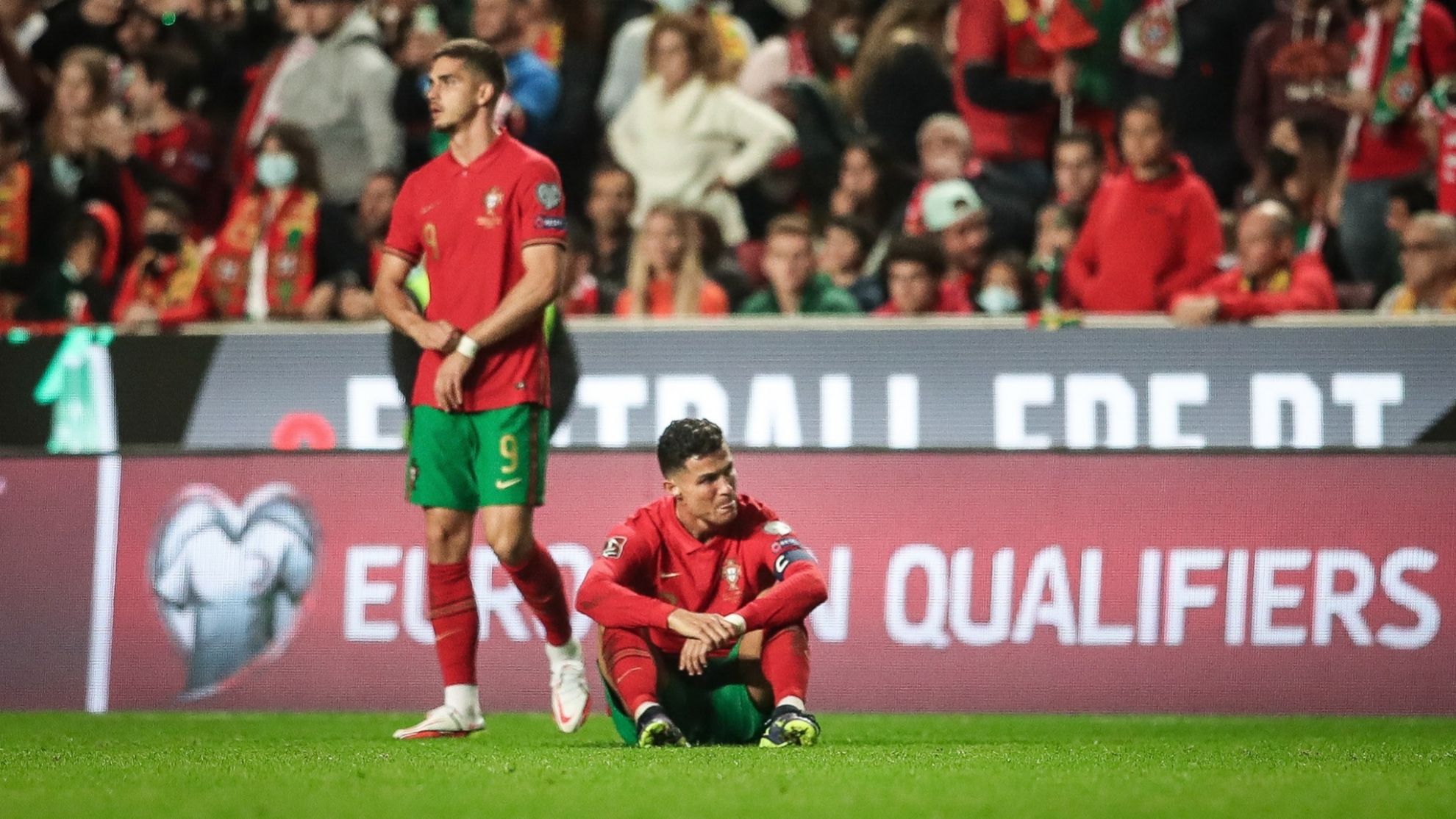


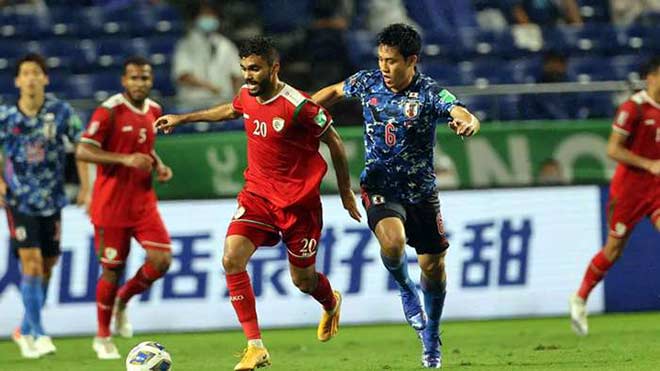
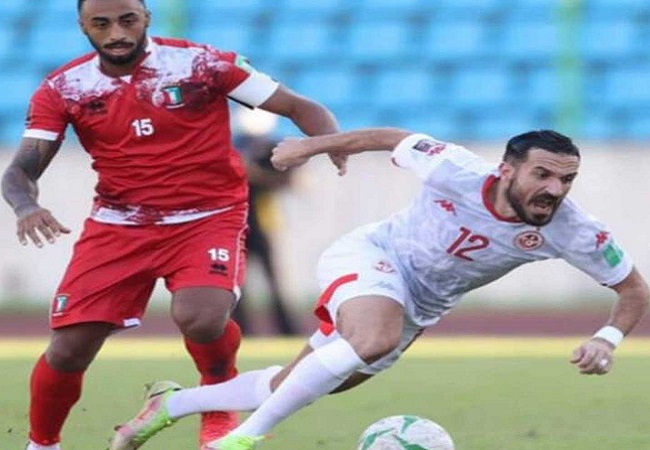

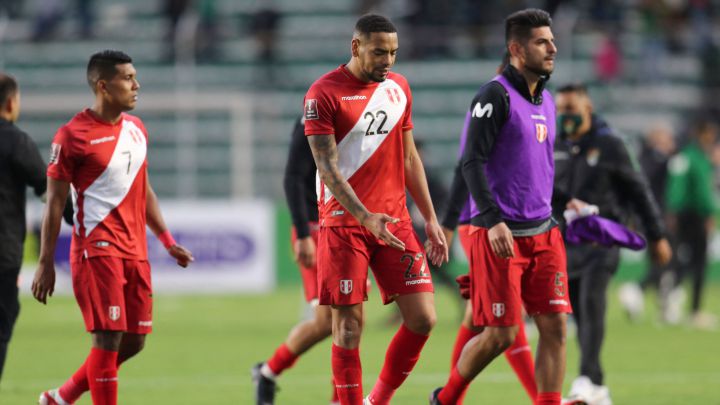
:no_upscale()/cdn.vox-cdn.com/uploads/chorus_image/image/69978348/download.0.jpeg)
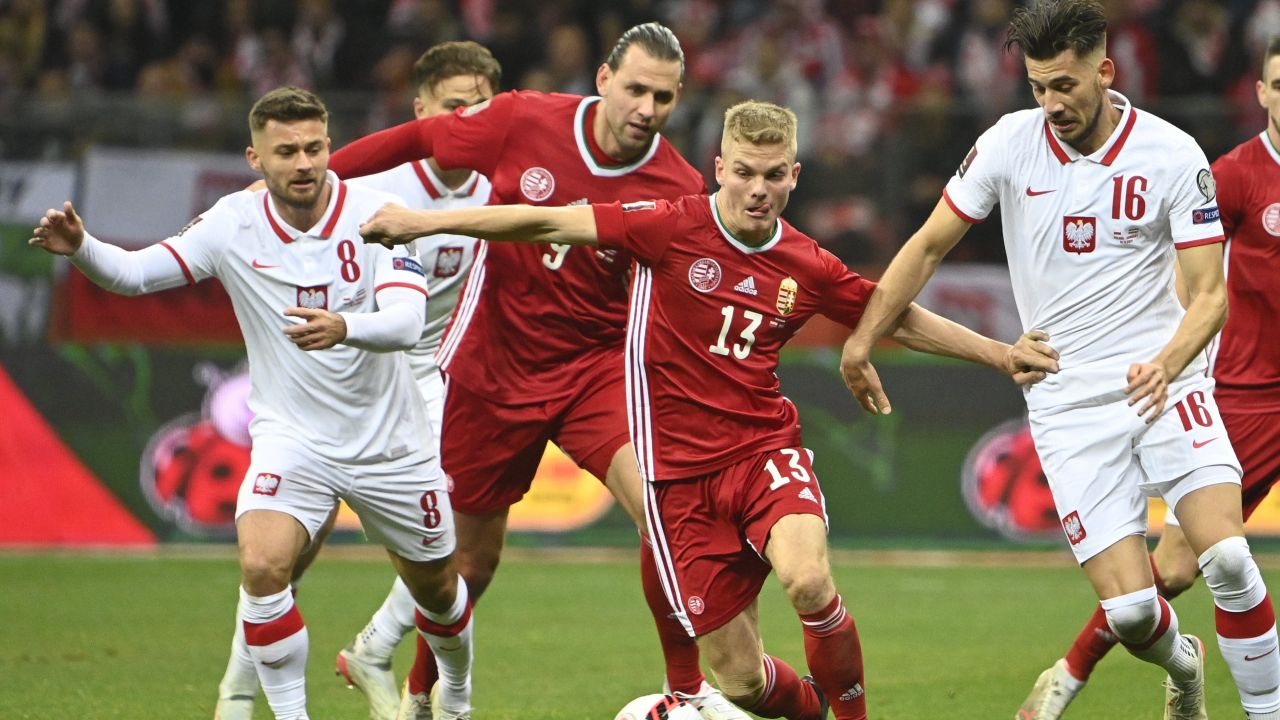

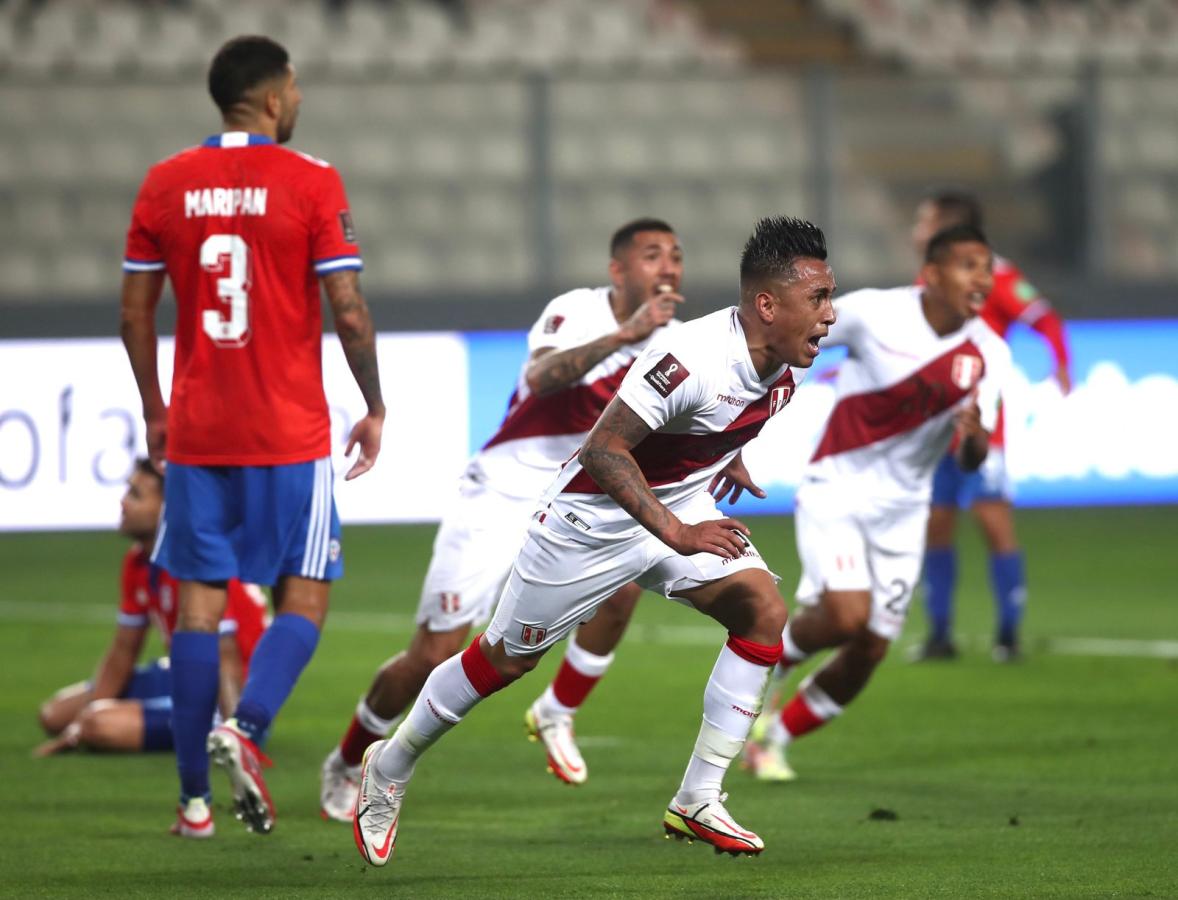



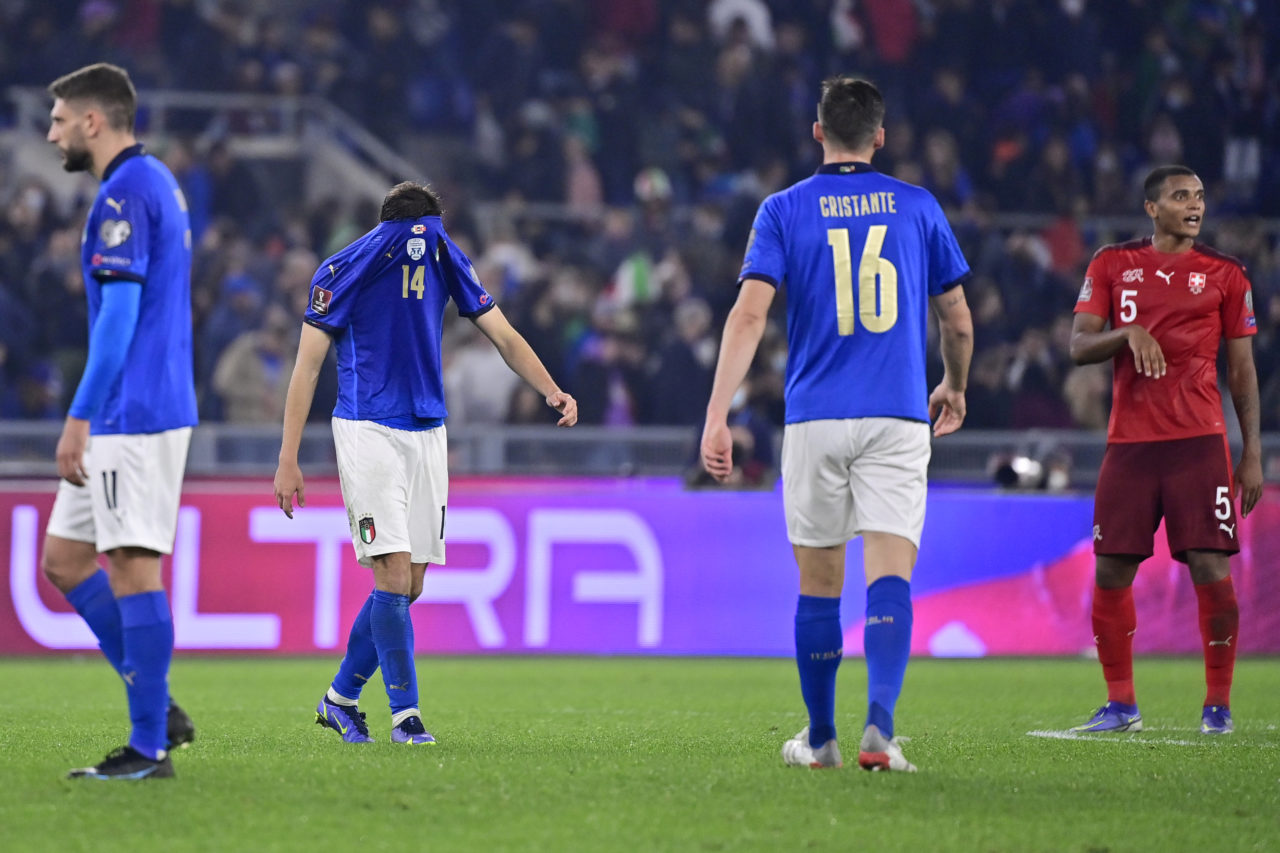
Comments
Post a Comment